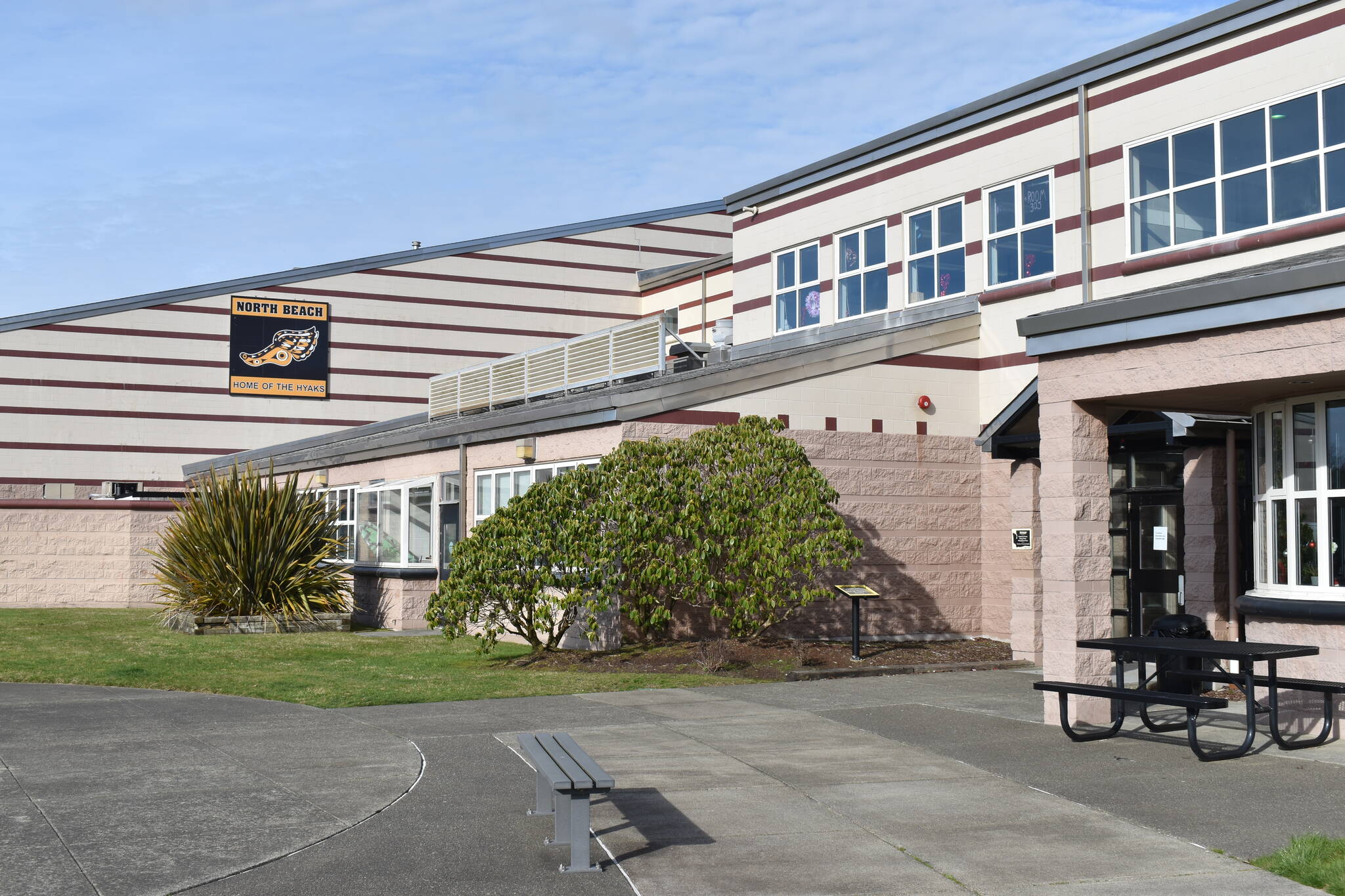Local agencies are planning on bringing a school-based health center — which would provide a higher and more accessible level of care for students, staff and potentially others — to North Beach Junior Senior High School in Ocean Shores.
If the proper grants are secured, the clinic could be up and running at North Beach for the start of the 2023-2024 school year, according to April Heikkila, public health manager with Grays Harbor County Public Health. The clinic would integrate primary care with behavioral and mental health services.
However, the project’s partners, including Quinault Indian Nation, North Beach School District and public health, are only a little over halfway through the designated planning period, and for the next five months will continue to assess the community’s needs and collect data.
“We want to make sure that we’re really spending time and we’re being intentional, for the services that eventually we do provide, about how we are going to serve the most kids and how we are going to be the most impactful,” Heikkila said.
The school-based health center would be the second of its kind in Grays Harbor County, after Elma Elementary District opened a center in January 2022. There are already 2,500 school-based health centers across the country — a number that has doubled since 1998, according to the most recent census data from the School-Based Health Alliance.
In the late 1980s, Seattle piloted the first school-based health centers in Washington, and as of January 2022, more than 65 centers operate in 25 different school districts in the state.
More recent growth is partly due to a 2021 bill from the state Legislature that directed the Washington State Department of Health to establish a school-based health center program office and expand availability of school-based health centers in public schools, with a focus on communities that have been historically underserved.
At the time, the DOH requested additional support to respond to growing behavioral and mental health needs of young people.
Along with five other agencies, Grays Harbor Public Health received a $50,000 planning grant for July 2022 through June 2023.
In addition, six agencies in the state received grants either for start-ups, implementation, operations, improvements or expansions.
Once the planning period is finished, Heikkila said the North Beach center’s opening is still dependent on receiving grants for implementation.
Heikkila said it is not yet determined exactly what services the center will provide, and to exactly whom. As opposed to standard school health services, which are usually physical or behavioral assessments provided by a school nurse or psychologist, school-based health centers deliver primary care. That could include treatment for acute injuries, prescribing medication and dental or vision care, depending on community need and funding, Heikkila said.
Public health will contract with a medical provider, should grant funding be approved, Heikkila said, adding the centers are intended to compliment, rather than replace, existing school nurse practices.
The primary focus of school-based health centers is care for students, Heikkila said.
“We want to keep kids in school, we want them to stay connected to folks that they know and trust,” Heikkila said. “Having it located within the school, they are able to build and foster relationships of trust so they can better serve students both on the primary side and the integrated mental health side.”
According to the Washington School-Based Health Alliance, school-based health centers provide care to all students enrolled in the hosting school. That could be extended to students district-wide, families of students or community members.
Heikkila said models for school-based health centers that serve entire communities are generally few and far between. Such a model would take further funding and collaboration beyond the first stage of implementation, Heikkila said.
Public health is currently developing a business model for an ideal school-based health center, and that model will be shaped and molded based on the funding that comes in, Heikkila said.
Heikkila said public health, North Beach and the Quinault Indian Nation (QIN) are all “foundational partners” in bringing the center to the Ocean Shores school, and during the planning process have put an emphasis on serving tribal communities and addressing behavioral health, which is in accordance with the state’s administrative goals.
“We have such a strong collaboration with our QIN partners, and we want to make sure our services are culturally competent, they are meeting and serving the needs of our tribal youth as they meet and serve the needs of our non tribal youth,” Heikkila said.
According to the School-Based Health Alliance, school-based health centers are “typically located in schools where students have socioeconomic, geographic or other barriers to accessing healthcare in the community.”
Last fall, Grays Harbor County Public Health released a behavioral health needs analysis, a report that provided a blueprint for addressing barriers to mental and behavioral health needs in the county. The report found that people in Ocean Shores had little access to local behavioral health care because the only behavioral health provider has not operated for two years because of clinician vacancies.
Conducted as part of the planning process, recent community needs assessments have identified sport physicals, child immunizations and behavioral and mental health support as current areas of need, Heikkila said.
Heikkila said public health did a site visit to the school this week. And for those looking for more information on plans for the center, North Beach Project Connect will be hosting a discussion forum on Wednesday, Feb. 8 from 10 a.m. to noon at the Ocean Shores Lions Club.
Contact reporter Clayton Franke at 406-552-3917 or clayton.franke@thedailyworld.


